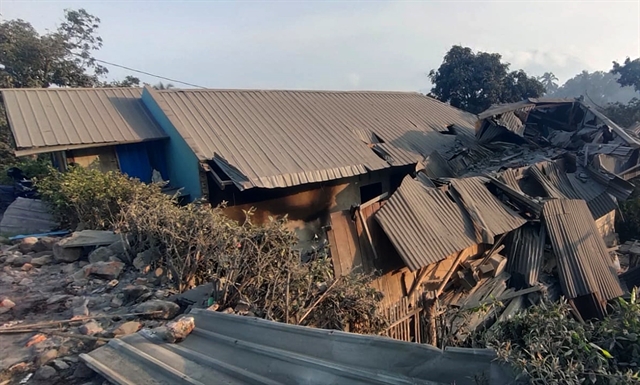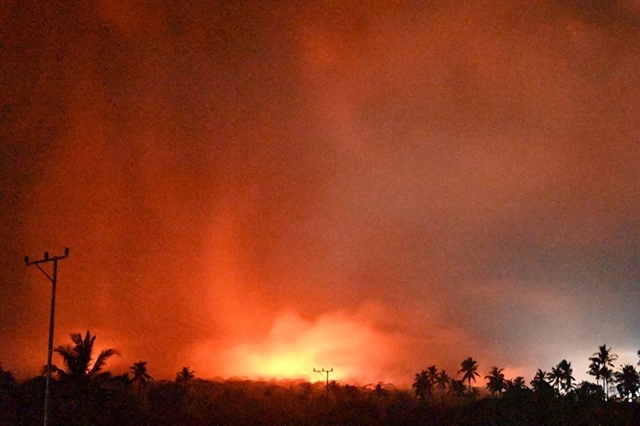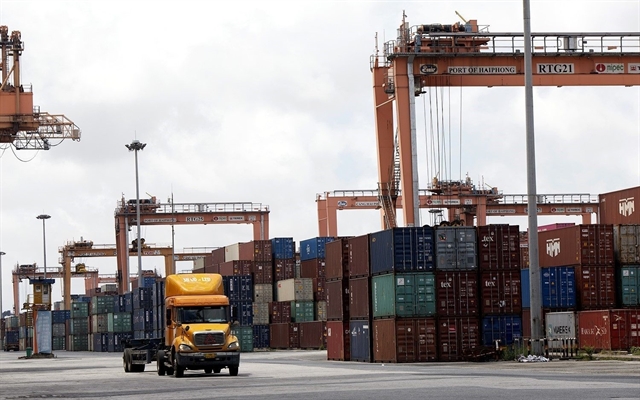 World
World

 |
| Houses are destroyed in Mount Lewotobi Laki-laki's eruption in East Nusa Tenggara, Indonesia earlier this week. — THX/VNA Photos |
HÀ NỘI — Indonesia’s Mount Lewotobi Laki-laki erupted again on Thursday, spewing a 2,500m high column of hot ash, just three days after a midnight eruption killed nine people and injured 64 others.
The Indonesian Centre for Volcanology and Geological Hazard Mitigation said the 1,584m high volcano on the popular tourist island of Flores emitted hot gray ash clouds that extended up to 1km from the crater. No casualties have been reported in the latest eruption.
Mount Lewotobi Laki-laki's eruption on Monday this week affected more than 10,000 people in 10 villages. About 4,400 villagers had to evacuate to emergency shelters after the eruption destroyed seven schools, nearly 20 houses and a monastery.
Numerous earthquakes and eruptions occurred at the volcano last week, producing ash columns of 500-2,000m in height for several consecutive days.
 |
| Mount Lewotobi Laki-laki's eruption on November 3, 2024. |
Indonesia's volcano monitoring agency has raised the alert level for Lewotobi Laki-laki to the highest level and doubled the no-go zone to a radius of 7km, while banning all activities in the area.
According to the head of the National Disaster Management Agency, Suharyanto, the government plans to relocate about 16,000 residents out of the danger zone.
Earlier this year, in January, about 6,500 people were evacuated after Mount Lewotobi Laki-laki began erupting.
Authorities had to close Fransiskus Xaverius Seda Airport on Flores Island. No casualties or major damage were reported, but the airport has remained closed since then due to seismic activity.
Lewotobi Laki-laki is one of 120 active volcanoes in Indonesia. The country frequently experiences earthquakes, landslides, and volcanic eruptions as it lies on the Pacific “Ring of Fire”. — VNA/VNS




